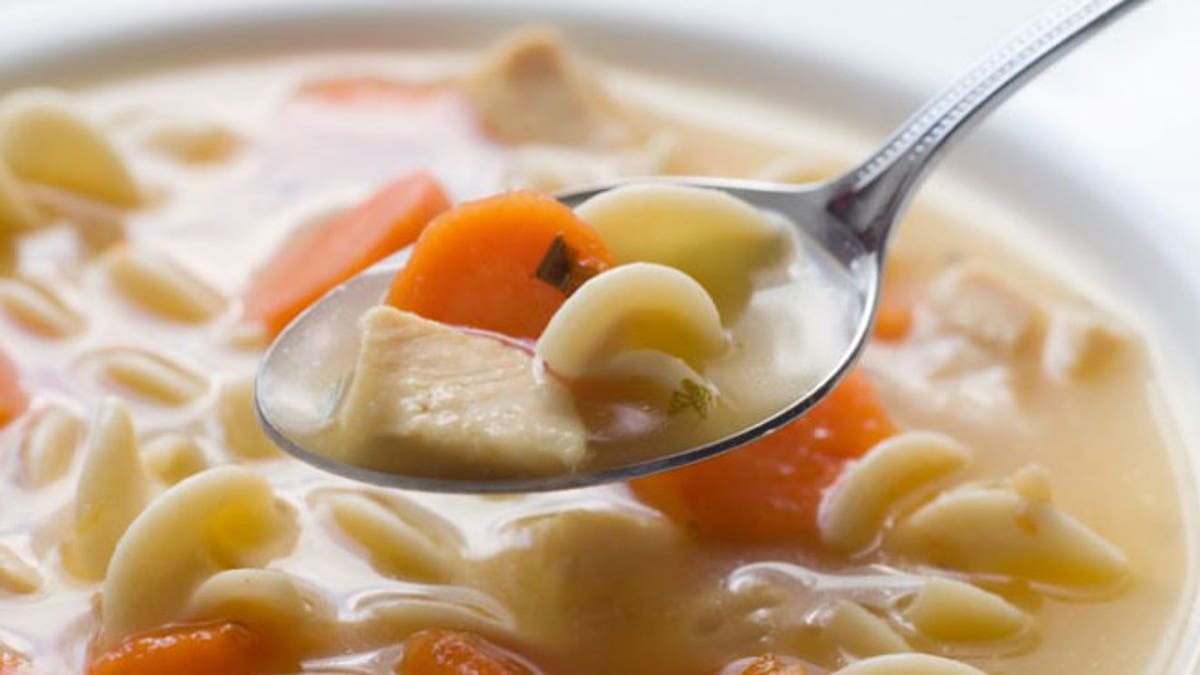
Get vaccinated, wash your hands, don't touch your face—these rules are second nature (or at least they should be) come flu season—especially because this year's strain is particularly nasty.
But, little do most germaphobes know, what's on your plate can also help keep you from coming down with the flu—and, if you are unfortunate enough to get it, kick the virus's butt. Stock your kitchen with these flu-fighting foods.
RELATED: 24 Steps to a New, Healthier You
Greek Yogurt
Probiotics do more than just make you poop. "Probiotics are healthy microorganisms that can help support bacterial balance in the gut," says dietitian Jaime Mass, R.D.N., L.D.N. Research published in the journal Current Topics in Microbiology and Immunology shows that balanced gut bacteria is associated with improved immune-system function and reduced susceptibility to infection. To get your healthy gut bacteria, look for yogurt and kefir with "live and active cultures." Sauerkraut and supplements are also good sources.
Chicken Noodle Soup
Mom was right. Chicken noodle soup has powerful anti-inflammatory properties—preventing white blood cells from congregating in your respiratory tract—meaning it can help soothe your symptoms, according to research from the Nebraska Medical Center. Meanwhile, chicken soup is an easy way to take in fluids, as well as vitamins and minerals, when you're down and out. "When we're sick, we don't want to eat and don't want to drink, but you need to continue to eat and give your body the nutrients and energy you need for the immune system to function properly," says Michael P. Angarone, D.O., assistant professor of infectious diseases and medical education at Northwestern University's Feinberg School of Medicine.
RELATED: The Only 5 Exercises You'll Ever Need
He notes that when you're sick, both fevers and heavy breathing can cause you to lose extra fluid. If you're gluten-intolerant, ask your nurse to make chicken and rice soup or to pick up a can of your favorite gluten-free brand.
Green Tea
When you're sick, fluids are critical. But even if you feel fine and dandy right now, green tea's high levels of polyphenols and catechins (including epigallocatechin gallate, a.k.a. EGCG, which is among the most powerful known antioxidants) can help fight off viruses and promote healthy immune function, Mass says. "These are just the properties related to flu season; don't forget the potential support you could receive for your heart, brain, joints, metabolic, and overall cell health by drinking green tea." To see how much EGCG is in your green tea, check out consumerlab.com.
RELATED: Shirtless Nick Jonas Explains How He Got His New Body
Whey Protein Powder
It'll pump up your muscles—and your flu-fighting powers. "If the whey is processed carefully and at low temperatures, it will contain naturally occurring immunoglobulins and lactoferrin," Mass says. "Lactoferrin is actually a component of the immune system, supporting our overall immune health and helping us to fight off infections." Always buy high-quality products and look for immunoglobulins and lactoferrin on labels.
Ginger
As if a stuffy nose and a headache weren't bad enough, the flu can also come with vomiting, diarrhea, and nausea. If that's you, eat some ginger. "Components found in ginger, such as galanolactone, may act via the central nervous system to affect serotonin levels and alleviate nausea," Mass says. "In fact, the compound acts on the same pathway as some common anti-nausea remedies." Try ginger tea, ginger ale, a hard ginger candy, or even pickled ginger. (But don't eat raw fish if your stomach is sour.)
RELATED: 14 Healthiest Snack Foods to Buy
Citrus Fruits
"Vitamin C is a potent antioxidant that can effectively fight off free radicals in the body," Mass says. "Whether or not vitamin C fights the flu is controversial in the literature, but if you ask me whether or not you should eat vitamin C-rich foods, the answer is yes—and all year round!" Great, healthy options include citrus fruits, berries, leafy greens, pineapple, and cruciferous vegetables such as broccoli, Brussels sprouts, and cauliflower. Angarone notes that vitamin C appears to have the biggest health benefit in people who exercise regularly.
RELATED: 5 Reasons to Skip Breakfast
Sardines
Hmm . . . sardines. "Now you can see why most people are deficient in vitamin D," Mass jokes. She notes that most of our vitamin D intake comes from sun exposure, which is lacking during the dark and short winter days. So if you don't put forth some serious effort to eat D-rich foods, you can easily become deficient in the winter. "Vitamin D has been found to be an essential part of our immune-system regulation. In fact, there are vitamin D receptors on our immune cells and vitamin D may help both your innate and adaptive immune response," she says. Your doctor can evaluate your vitamin D levels with a simple blood test. If cod liver oil, sardines, and herring aren't your thing, you may want to try a vitamin D supplement.
RELATED: Can You Out-Exercise Bad Eating Habits?
Beef
"Zinc can help support your body's ability to make white blood cells, and white blood cells are the fighters for the immune system," Mass says. While the jury is still out, it's possible that zinc may also reduce how long you feel an infection's symptoms, according to Angarone. Foods rich in zinc include beef, chicken, lamb, spinach, sesame seeds, lentils, and chickpeas. You have lots of great options here.







































